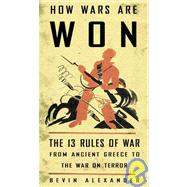
| List of Maps | |
| Introduction: The New Kind of War | p. 1 |
| The Revolution in Warfare | p. 11 |
| Striking at Enemy Weakness | p. 23 |
| Defend, Then Attack | p. 46 |
| Holding One Place, Striking Another | p. 74 |
| Feigned Retreat | p. 94 |
| The Central Position | p. 121 |
| Employing a Superior Weapon | p. 151 |
| Driving a Stake in the Enemy's Heart | p. 180 |
| Blocking the Enemy's Retreat | p. 202 |
| Landing an Overwhelming Blow | p. 232 |
| Stroke at a Weak Spot | p. 252 |
| Caldron Battles | p. 270 |
| Uproar East, Attack West | p. 301 |
| Maneuvers on the Rear | p. 325 |
| Notes | p. 357 |
| Selected Bibliography | p. 379 |
| Acknowledgments | p. 385 |
| Index | p. 387 |
| Table of Contents provided by Blackwell. All Rights Reserved. |
The New copy of this book will include any supplemental materials advertised. Please check the title of the book to determine if it should include any access cards, study guides, lab manuals, CDs, etc.
The Used, Rental and eBook copies of this book are not guaranteed to include any supplemental materials. Typically, only the book itself is included. This is true even if the title states it includes any access cards, study guides, lab manuals, CDs, etc.